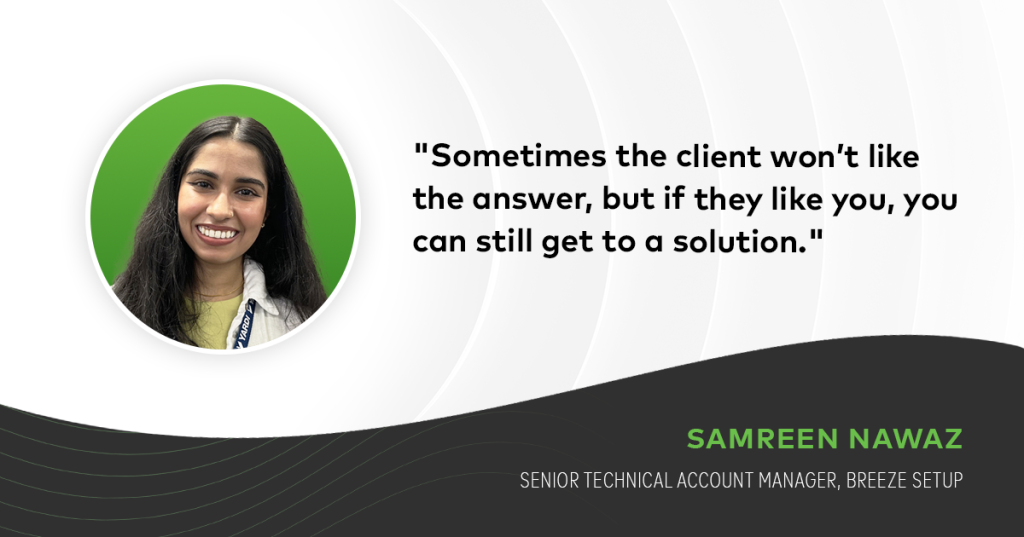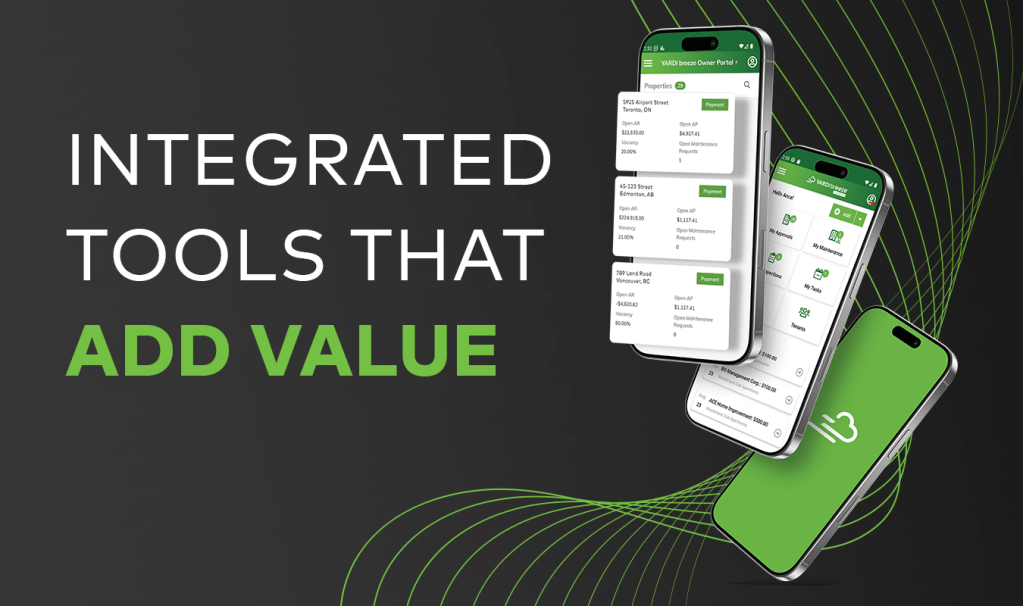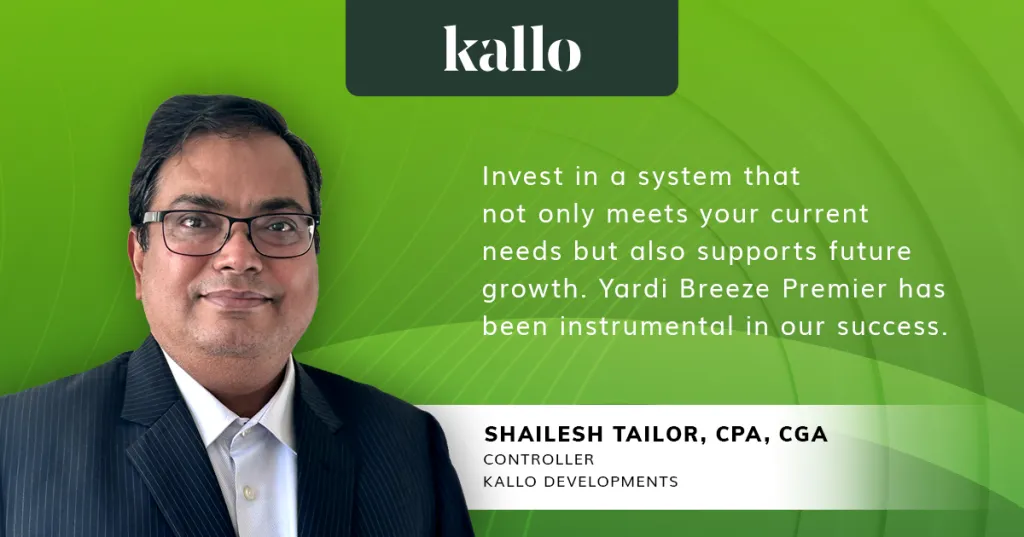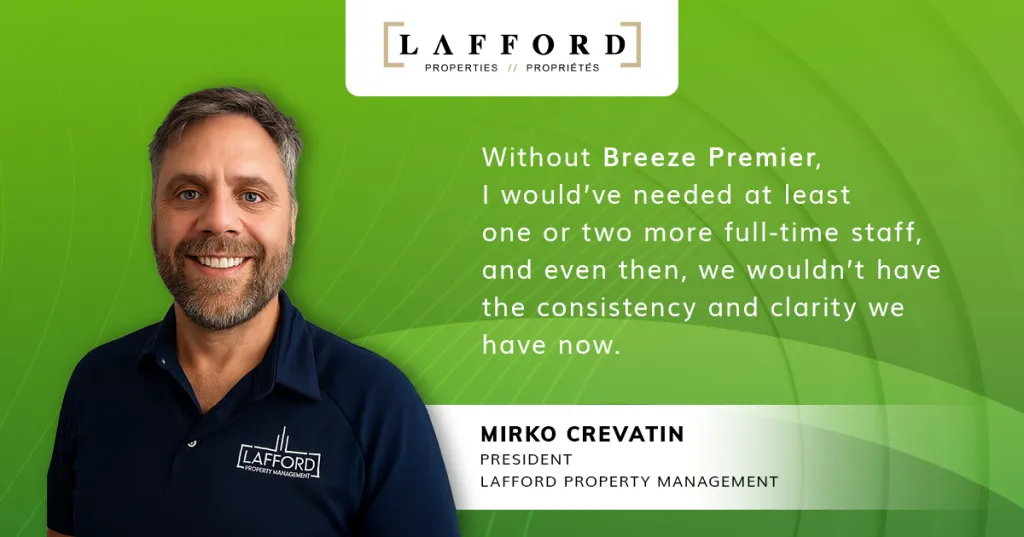
Samreen Nawaz is a senior technical account manager on the Yardi Breeze Premier setup team. Based in Toronto and supporting clients across Canada and the U.S., she has played a key role in developing implementation processes since the launch of Breeze Premier in Canada. We caught up with Samreen to talk about her journey from Toronto Metropolitan University to Yardi, how she learned to lead with confidence and the value of being process-driven while staying flexible enough to grow.
Can you tell us a bit about your journey into tech and how you found your way to Yardi?
I studied business technology management at Toronto Metropolitan University, which gave me a balance between business and tech without locking me into one path. Toward the end of my degree, I also completed a certificate in data science, and that’s when I started applying to tech jobs. I didn’t know much about software as a solution (SaaS) or Breeze at the time, but I knew Yardi was a major player in property management software. I started on the client success team in 2019, not totally sure what to expect, but I’m so glad I took that chance.
What made you stay in client success and later move into implementation?
I had worked in customer service throughout university, so I was used to dealing with different personalities. What surprised me was how much I liked it. Once I started working with clients, especially during the early days of the pandemic, I realized that daily interaction helped me stay grounded. Later, I joined the Breeze Premier implementation team as we launched in Canada. It was all new: the product, the clients and the processes. It was a huge growth opportunity. I helped build a lot of the processes we still use today.
Who helped you grow in those early years?
I’ve been lucky to have strong mentors at Yardi. One I really want to shout out is Jodi-Anne, who became my team lead on not one but two teams. She saw potential in me and pushed me toward opportunities I wouldn’t have pursued on my own, including building Aspire courses and helping with REfresh. Her support helped me grow, not just in my role but in how I saw myself as a leader.
How do you stay organized with so many clients and moving parts?
I live in my OneNote. I take detailed notes, create templates for my meetings and adapt based on the client. Sometimes I track personalities, sometimes I focus on shifting priorities. It depends on what makes the most sense. The key is leaving flexibility in your process so you can grow and improve as you go. Nothing has to be set in stone.
Was there a defining moment that shaped your confidence as a leader?
Implementing a large association client with over 4,500 units was a big one. I supported them for over a year, and there were so many unknowns. I wasn’t familiar with association at the time, and they were coming from Genesis. But I built trust with them early, and that made everything easier. I learned that implementation isn’t about fitting clients into a perfect system. It’s about understanding what they truly need and adapting the platform to support them. That client taught me a lot.
How do you manage boundaries and stay positive while dealing with tough client situations?
I learned early on not to take things personally. When I did phone support, I would get clients at their most frustrated. I wasn’t the one who caused the issue, but I was the one answering the call. Now, in implementation, I have longer relationships with clients. If something starts off rough, I know I can turn it around. Sometimes you just have to let clients express their concerns, then work with them to find a practical solution. It’s all about staying calm and being honest.
What advice would you give to women, especially recent grads, looking to break into tech?
Tech isn’t one thing. It’s not all coding or product development. If you like talking to people, there are client-facing roles. If you’re more technical, there are backend roles. Keep an open mind. Your degree doesn’t define your path. I never imagined I’d be in client success, but I ended up loving it. Also, don’t be afraid to reach out to people. A lot of us are happy to share our stories.
If you could go back and give your university self one piece of advice, what would it be?
One bad outcome doesn’t define your career. I used to take things very personally. If a client was upset, I assumed I had failed. But that’s not always the case. Be honest with yourself and learn from the experience. Sometimes you’ll look back and realize there was nothing else you could have done. That’s a lesson too. Every experience is a chance to grow.



